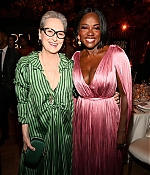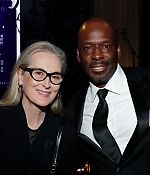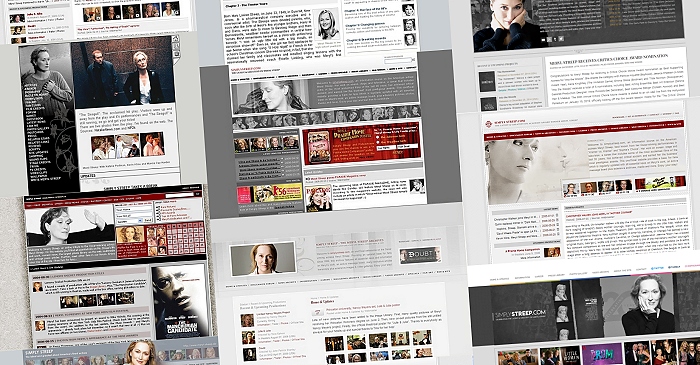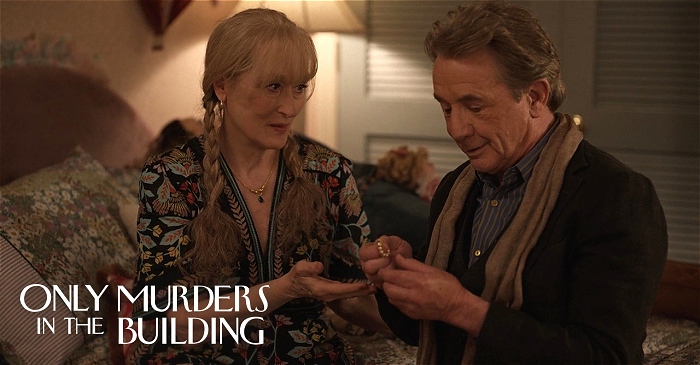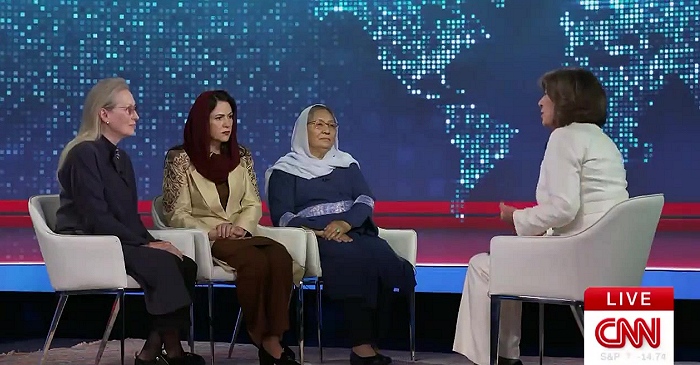
|
Meryl Streep: How Margaret Thatcher became my heroine
The Express ·
November 26, 2011
· Written by Garth Pearce
|
“She is like a heroine from Shakespeare,” she says. “I have held her up as an example to my three daughters of what women can do to change the world.” Streep, 62, who plays Baroness Thatcher, now 86, from her 40s to virtually the present day in a remarkable performance, became entranced by her character. Yet she admits that she knew little or nothing of her life or political policies. “What interested me more was the cost of her own political decisions on her, as a human being,” she says. “The more I researched, the more fascinated I became. When you are a leader and the buck stops with you what does that do to you and how do you stay strong? “I also realised how her policies split the nation. Some thought she was great. Others detested her for those policies. It was such a lonely job, especially for a woman.”
Streep was a controversial choice, as an American, to play our Iron Lady. But British director Phyllida Lloyd, who directed Streep three years ago in Mamma Mia! says it was obvious to her. “Margaret Thatcher is the most significant female leader this country has had since Elizabeth I,” she says. “So I wanted the world’s most significant actress to play her.” Streep, though, who has captured the Thatcher voice and renowned grooming to perfection according to many who have already seen the film, has clearly fallen for her subject. “Margaret says that if you take tough decisions then people will hate you,” she says. “But they will thank you in the future. That is also how a mother has to think – you have to say it is painful now and my children hate me but it will work out in the long run.
“The long term is where we have to fix our sights – whether a politician or a mother. I keep on telling my daughters (aged 20 to 28) how different the world was in the Seventies when Margaret took over as the British prime minister – and what that took in personal sacrifice and effort.” Streep’s daughters, actresses Mamie, 28, and Grace, 25, plus student Louisa, 20 – she also has a 32-year-old son Henry, an actor and musician – have always been encouraged to be strong characters. “I think some men are terrified by it,” she says. “But more than half the kids at college are now women and half the medical students are women. There have been huge changes. Margaret was doing it in the days when men could be so condescending, particularly in politics. She is a shining example to young women of what can be achieved.” It was feared that the film, financed partly by the now defunct Film Council, would deliver a virtual hatchet job on the Thatcher legacy. Instead, despite scenes that depict her being fiercely competitive and confrontational, it does the opposite. It opens with an elderly Thatcher, walking slowly and unrecognised with a headscarf over her famous hair, going into a shop to buy a pint of milk (“49 pence?” she scolds) and newspaper. She has given security the slip outside her London home. On her return, with much fuss about her whereabouts, she talks to husband Denis, played by Jim Broadbent. It is soon obvious Denis is long dead and the conversations are all in her imagination. The film then slips between the present and the past as Thatcher recalls key moments in her political life. It includes her election as an MP in 1959, with actress Alexandra Roach playing a young Thatcher. By the time the story reaches the Seventies, Streep has taken up the role.
The film shows the series of tough battles Thatcher fought and won. She became Conservative leader in 1975 – the year Streep left Yale University – after defeating Edward Heath. She then beat three Labour leaders in three general elections: Jim Callaghan in 1979, Michael Foot in 1983 and Neil Kinnock in 1987. There were battles with the trade unions and the triumph of the Falklands War. Streep, nominated for a record number of 16 Oscars (she has won two), plays an elderly Thatcher with the help of much make-up and prosthetics. “I still think of myself as 20,” she says. “But the advantage of being my age is that you can remember what life was like when you were younger and have the imagination to know what it could be like being much older. “I don’t think any of those scenes show disrespect to her. It shows a very full life, well lived, with incredible achievements. Even Jim Broadbent, who came in with a bias very much against Margaret Thatcher, gave her credit for such hard work. “When I found out that she needed only five hours sleep a night – and she was British prime minister for longer, at 11 and a half years, than any other in the 20th century – I was amazed. Most of us need a full eight hours a night and I count myself among them. Yet I went through a lot of archive footage on her and she seemed to maintain a glowing energy and never looked tired. “She also knew that she always had to be more prepared, have all the answers to questions that anyone could possibly ask her, simply because she was a woman.
“I think she must have used up all those spare hours that she did not need to sleep to eat up work. She looked constantly up for the fight, with an incredible appetite for the job.” The same could be said of Streep herself, who confesses she was painfully shy and awkward until she started acting. “I felt unhappy when I was young, because I looked awful, with glasses and spots,” she says. “Also I never felt particularly young, more like 40. I was always old beyond my years and yet now I am old I feel younger. It’s strange. But acting is a quest for me. I become obsessed.” That obsession has taken her through a succession of great roles in films such as Kramer Vs Kramer (1979) and Sophie’s Choice (1982), both which won her best actress Oscars, plus Out Of Africa (1985), The Bridges Of Madison County (1995), The Devil Wears Prada (2006) and Julie & Julia (2009), for which she was Oscar nominated last year.
Yet away from it during long family breaks she has lived far from Hollywood in Connecticut. “I have a completely different life and it gives me strength to do my work,” she says. “When the kids were young I cooked, cleaned, washed – just like any other mom. “We made new rules all the time, because every single day it got a bit harder with a big family. I know I could have never dreamed of making movies without my own husband Don. I love him – and am grateful.” Meryl Streep has not even met Margaret Thatcher – who has not yet taken up an invitation to see the film – but says: “I am overwhelmed by how big her life has been and how she conquered her fears to become so strong and powerful.” The Iron Lady is released on January 6, 2012.
THE QUIET MAN WHO STANDS BY MERYL
Meryl Streep knows all about the strength of a man behind a successful, ambitious woman. Her sculptor husband Don Gummer has often played second fiddle to his world famous wife, just like Denis Thatcher did. While the Thatchers marriage survived over 51 years, until Denis’s death, aged 88, in 2003, Streep and Don have been married for 33 years. “There is no road map for a successful marriage and how to raise a family,” she says. “It is always an enormous negotiation. A strong woman needs a very secure man.” While she has travelled the world in a succession of acting roles, Don, 64, has been a quiet, rock-like presence, who has worked successfully far from the headlines. “My husband understands the compulsion to create things,” she says. “With somebody who has a regular job it might be harder to translate those creative impulses. But he is an artist and we have shared values. Our marriage and our children and wellbeing inform all the decisions we make.” She also understands how, as the film portrays, Lady Thatcher’s life has been empty since Denis’s death. “I don’t know what I would do without my own husband. I would be dead, emotionally, at least, had I not met him.” Like the Thatchers, they wed before Streep’s career had really taken off. She had been in just two movies before their wedding in September 1978. But Don signalled how lucky he would be for her when she was nominated for her first Oscar, for best supporting actress in The Deer Hunter, just months later.


